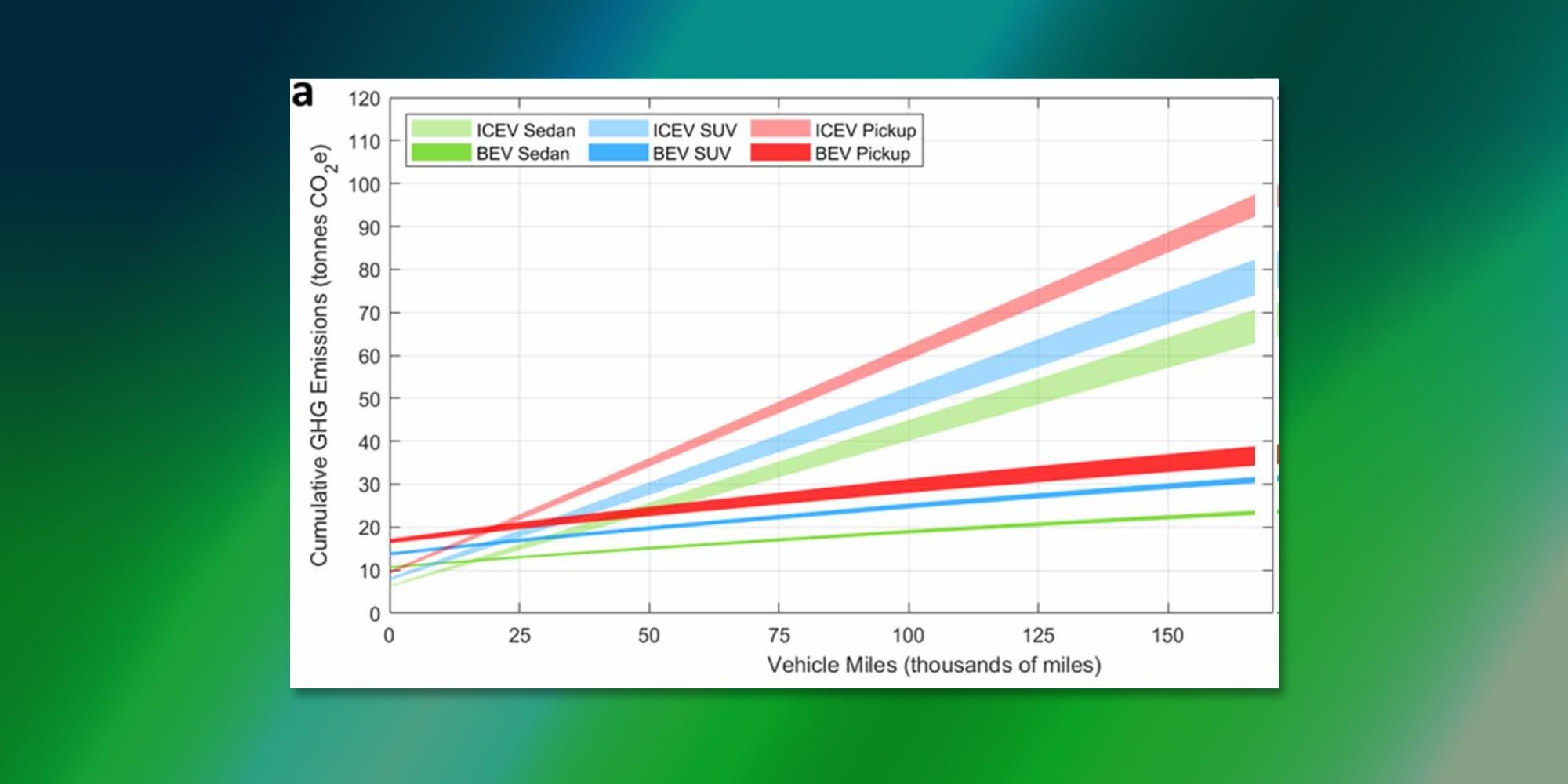A new study revealed how much better electric vehicles are for preventing emissions and protecting the environment. While similar studies have been done, there has been an ongoing debate that perhaps some critical parts of a vehicle's lifespan were left out. Most notably, there has been serious discussion about how 'green' it is to produce the large battery packs needed to provide enough power to move a heavy car or truck down the road for hundreds of miles. It's a fair point and something that had been overlooked in the past.
The great thing about gasoline is that it stores a remarkable amount of energy in a relatively easy to manage and lightweight form. The obvious downside is that burning fuel creates toxic compounds that are directly harmful to humans and the environment. Electric cars, on the other hand, are emissions-free. However, that's an over-simplification because manufacturing, maintenance, and disposal, known as the vehicle cycle, create emissions as well.
Large battery packs are required to power most EVs, and those batteries contain dangerous materials that must be mined, processed and assembled, creating environmental concerns. The debate has raged for the last few years about which is worse. It has generally been believed that electric cars were still better, but a new study funded by Ford and published in the scientific journal Environmental Research Letters might help clear up any confusion on this matter. The conclusion is that EVs reduce greenhouse gases even when considering emissions for the entire life cycle. There were, however, a few surprises in the report.
Electric Vehicle Cycle Emissions
Manufacturing, maintenance and disposal of the batteries needed for electric vehicles create emissions so high that a gas-powered car or truck is much 'greener' right out of the factory. In fact, the internal combustion engine (ICE) vehicle cycle emissions were between four and seven tons of CO2 lower than those of an EV of the same class. It's similar to solar panels, which are initially a substantial financial burden, yet recover that cost and begin saving money over time.
Of course, driving an EV is better in terms of emissions than a car or truck that spews fumes from the tailpipe. Regarding the bigger picture of the cradle-to-grave life of an EV, the new study shows the gas-powered vehicle overtakes an equivalent EV in emissions well in advance of the 25,000-mile mark. That big environmental 'loan' that the EV has to take to account for the vehicle cycle emissions (manufacturing, maintenance and disposal) is paid soon after the EV is put into use. Over the lifetime of an electric vehicle, emissions are reduced by between 28 and 64 percent compared to an ICE.
Source: Environmental Research Letters


